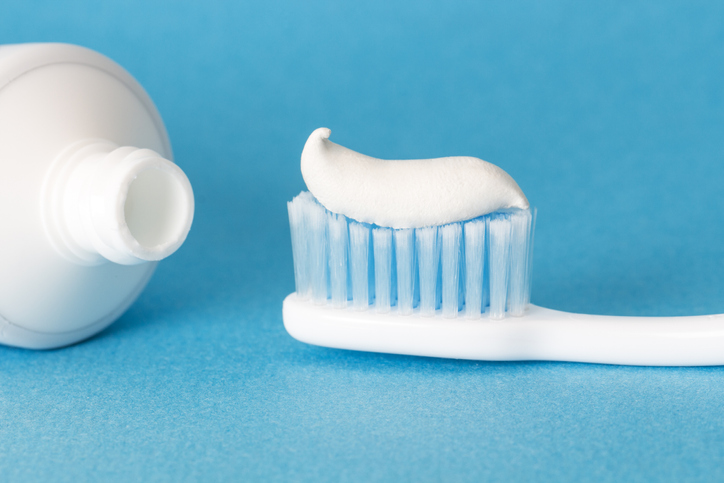
Toothpaste contains many ingredients you may not be familiar with. Here’s what you need to know about one common additive — potassium nitrate.
When deciding which health products to buy, it’s natural to peruse the ingredient list, and it’s easy to be confused by so many odd-sounding names. What exactly are these additives? Are they safe? Should I use it if I don’t know what the ingredients are?
If you look at what’s in your toothpaste or mouthwash, you may have seen potassium nitrate listede and wondered what exactly it is, and why it’s in an oral care product. Potassium nitrate is often mixed in toothpaste and can be quite beneficial in treating tooth sensitivity.
What is Tooth Sensitivity?
If you’ve ever chowed down on hot or cold foods or sticky sweets and immediately felt a sharp pain in your teeth, you have tooth sensitivity. Your teeth become more sensitive when the outer layers of enamel and gum tissue wear away, exposing the next layer of dentin. Once the dentin is exposed, irritating substances will hit a nerve, causing pain.
So how does potassium nitrate help with sensitivity? Potassium nitrate is a salt compound and a natural desensitizing agent. It blocks pain signals from your dental nerve to your brain, so you don’t feel any discomfort. By brushing your teeth with a toothpaste with potassium nitrate, you’re coating your teeth with a solution that reduces pain and sensitivity.
But is it safe? Yes — your toothpaste contains only about 5 percent of potassium nitrate, which is also found in vegetables including spinach, celery, and cabbage.
Potassium Nitrate vs. Potassium Fluoride
Another common ingredient in toothpaste is potassium fluoride. Not to be confused with potassium nitrate, potassium fluoride in toothpaste or mouthwash protects against cavities, not tooth sensitivity.
Potassium fluoride is sometimes mixed into tap water. In areas of the world lacking water fluoridation, potassium fluoride is added to salt. People can consume fluoride-fortified salt to improve oral health.
Other Treatments for Tooth Sensitivity
Potassium nitrate-fortified toothpaste is one treatment for tooth sensitivity, but there are others. If you prefer a toothpaste without potassium nitrate, try one with stannous fluoride that also makes your teeth less sensitive.
You can try other at-home remedies, as well. If acidic drinks and foods trigger tooth sensitivity, avoid those foods. By skipping those foods, you’ll also protect your enamel from further deterioration. Switch to a soft-bristled toothbrush that is less irritating to your gums and teeth, and remember to brush gently.
For more advanced treatments, your dentist can strengthen enamel by applying fluoride directly to sensitive teeth. If the sensitivity stems from deteriorated gum tissue, your dentist may perform a gum graft procedure to cover the exposed tooth root.
Tooth sensitivity is a common oral problem, and it’s usually not a serious one. But if your sensitive teeth prevent you from enjoying the foods you love, then speak to your dental professional about dental products with potassium nitrate.
Don’t Live With Sensitive Teeth
Schedule an appointment at Espire’s La Mesa location today! Our highly trained dentists can check your teeth and help you overcome the discomfort of tooth sensitivity. Don’t live near our La Mesa, California office? Find one of our other locations near you.
La Mesa, CA
8555 Fletcher Parkway
Suite 102
La Mesa, CA 91942
